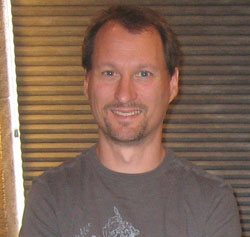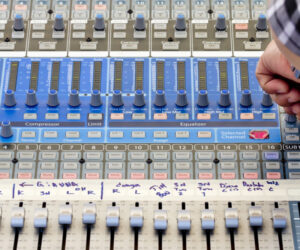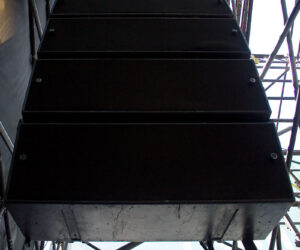Greg, you’ve mastered over 3,500 albums in the last two decades; what are common mistakes clients make when presenting a final product for mastering?
Now that so many artists are recording their own music, it has become much more common to find problems with incoming mixes.
I sometimes get mixes that are very bright or very dark, or mixes that have some bright elements and some dark elements – which is very difficult to address in mastering since the fix for one makes the other worse.
I get mixes that have been so over-processed that there is no life left in them. I get mixes that are so wide they sound phasey and mixes that are completely mono. I get mixes with the vocal so buried that it’s very distracting and hard to hear. I get hum and buzz and vocal sibilance and tics and click-tracks and all sorts of extraneous noises.
The most repeated comment in my studio is “I never heard that before…”
I think it all comes down to listening. In the heat of battle, sometimes it’s easy to get distracted by the process and not pay proper attention to what one is doing.
We get into a habit or a routine and do things the same way so many times in a row that we don’t take enough time to cleanse the pallet and get a fresh perspective. Taking breaks and listening to other music while recording can help you understand what is going well and what is not.
In the iPod age, your music is going to get played next to absolutely everything else out there. It needs to sound as good as the other stuff your audience is likely to hear. By taking extra time to critically listen to your own mixes in the context of other music, you will soon learn if you are on the right track.
I guess the take-home message is, make the mixes sound as good as you can, don’t worry about making them loud, and enjoy the process as much as you can.
You’ve mentioned that you’re not a fan of the current “make it as loud as possible” trend, and tha tin ten years we’ll probably look back on this era and cringe at some of the recordings. Why do you think many mastering engineers are taking this approach and why is it detrimental? Piggy-backing on this, are there other trends in mastering, and if so, do you tend to work against trends or incorporate these into your style?
Well, we didn’t start this fire! The push to make records loud isn’t as new as some might think. Go back 60 years and you’ll find that engineers were trying to cut records as loud as they could. Back then it was more a matter of getting the signal above the noise. There was also an argument for louder records sounding better on the radio.
In the modern world of digital noise floors and heavy broadcast processing, neither of those reasons holds water. Now it’s become a matter of doing it because we can, and because that’s what everyone else is doing.
When digital limiters and clippers became available they were used to raise the average level on CDs. One thing led to another and engineers and producers started to abuse the tools.
Now we’re in a situation I call the triple forte of death. FFF (fear, fad and fashion). Artists, label execs,producers, engineers… they’re all worried that their product won’t be perceived as professional unless it’s LOUD.















